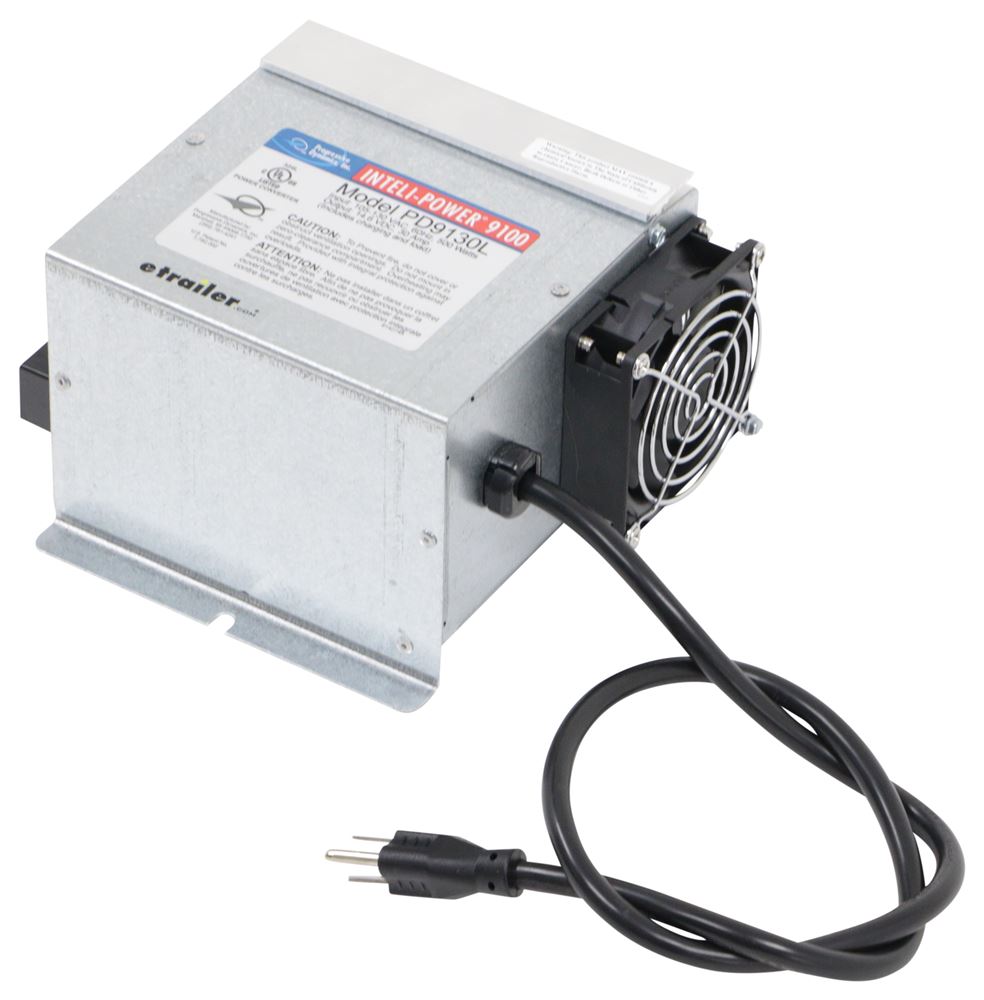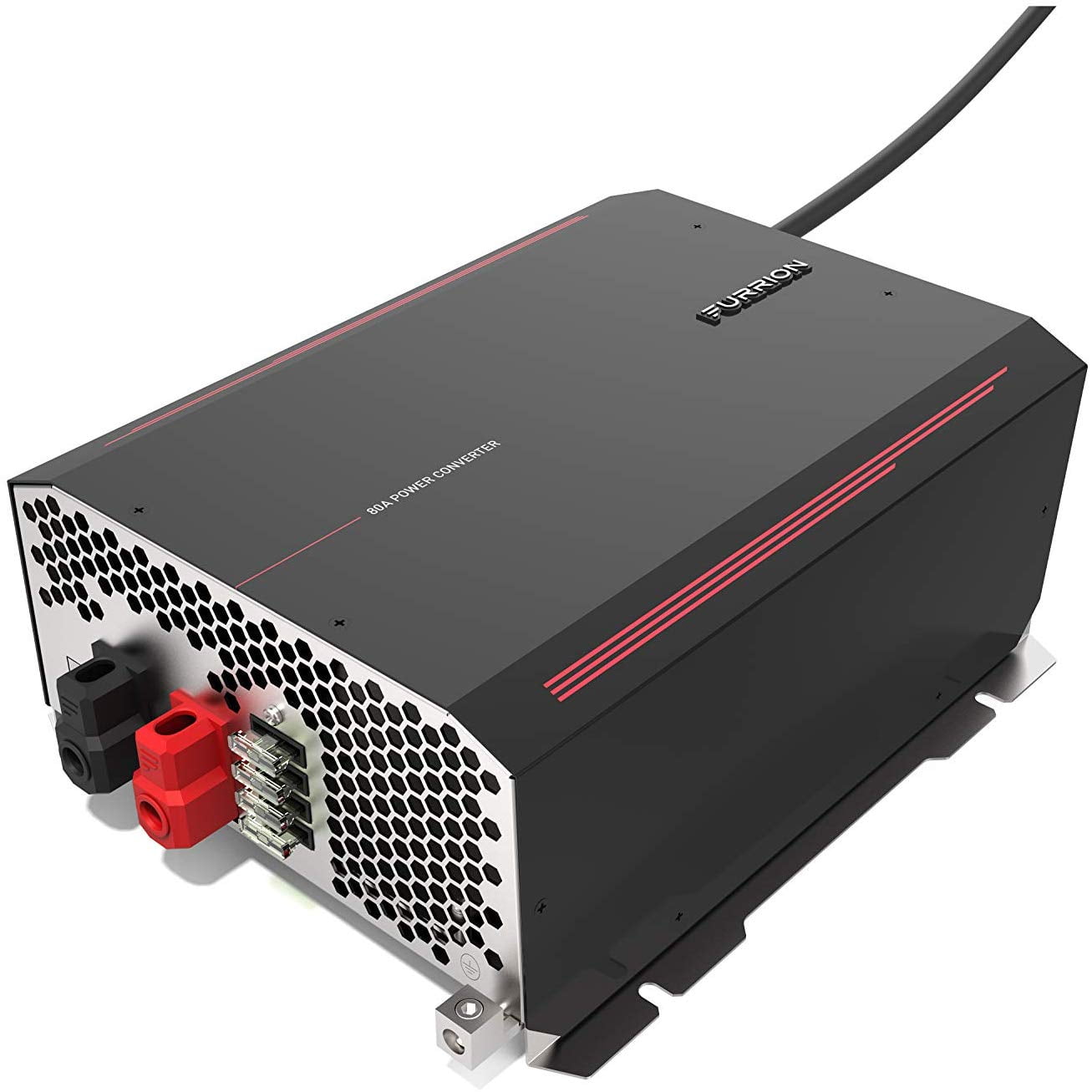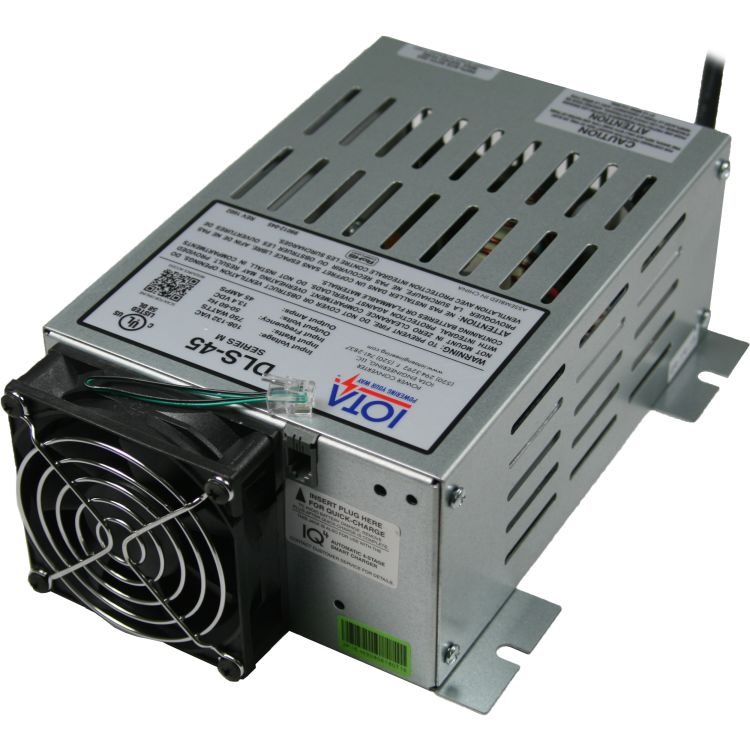

Most battery chargers are within the converter system inside your RV power panel. If you find your RV has a continually charging type of converter, it’s best to replace it with a multi-stage unit as soon as possible. This type of smart converter/charger is the only one to have in a recreational vehicle, as they are much safer and will extend the life of your RV house batteries.
#Power converter with battery charger full#
These units offer charging stages that will alter the current flowing to the battery to keep it full without allowing it to overcharge, as well as other battery protection features. Modern RVs should have an “intelligent” converter/charger. If the power keeps flowing to the battery once it’s full, it can overheat and damage the battery or even cause a fire. But unfortunately, these older or inexpensive charger units don’t have the sensors to reduce or stop the electrical current to the battery once the battery is nearing capacity. Some RVs have a battery charger within the converter that allows electricity to flow at the correct level to the battery. However, not all converter/chargers work the same way, with some models much safer and more efficient for charging your house battery. A solar charger is typically not part of a standard RV setup and is an extra component that works along with or in place of the standard RV house battery charger.Īs stated above, most recreational vehicles have the battery charger as part of the converter system, with many sold as a converter/charger. It doesn’t provide a way for the battery to send that power it’s holding out to any RV lights or appliances.Ī compatible charger for RVs with a solar power system takes power generated from the panels and converts it to keep your RV batteries charged. The only job of the battery charger is to maintain the battery’s power level. The charger allows a safe current of electricity to flow to the battery to hold the power until it’s needed. The battery charger within an RV is part of the entire electrical system, with wires that connect the main power panel to the 12-volt battery (or batteries). The unit is not what most people think of when charging up a dead car or golf cart battery.
#Power converter with battery charger generator#
What is an RV Battery Charger? Click to View on AmazonĪn RV battery charger is not a free-standing appliance you plug into an outlet or generator and attach to your RV house battery using alligator clips. To help you understand how these units function, let me detail what each does, what it looks like, and where you’ll find it within your recreational vehicle. More confusion occurs when explaining the differences between a converter and battery charger in an RV because, most often, the converter has a battery charging feature within the unit.

The Difference between an RV Battery Charger vs Converter a battery charger and what important features they should offer to keep your RV safe and operating correctly.

In the next section, I explain the differences between a converter vs. However, the only way to keep your battery bank and RV appliances and lights running properly in both situations is to have a converter and battery charger inside your camper. In general, the best recreational vehicles offer owners the chance to camp in comfort while on shore power and when off the grid. This mixing of power needs can become very confusing to new RV owners, and to be honest, is a common source of frustration among RVers with years of experience too! For example, the RV refrigerator will operate off 110-volt electricity or propane but will always require 12-volt power for the control panel to function. RV appliance design allows them to run off a combination of different power supplies. Propane and 12-volt power are necessary for RVers to use their camper’s appliances, lights, and other components when off-grid camping or during power outages at RV parks or campgrounds. Most RVs rely on 110-volt electricity that you access by plugging into shore power, 12-volt power stored in the RV house batteries, and in many instances, the third option for appliances to run is through propane. Before we get into the differences between an RV battery charger and an RV converter, I must first explain the various power supplies inside most recreational vehicles and how integral they are for everything to function correctly.


 0 kommentar(er)
0 kommentar(er)
